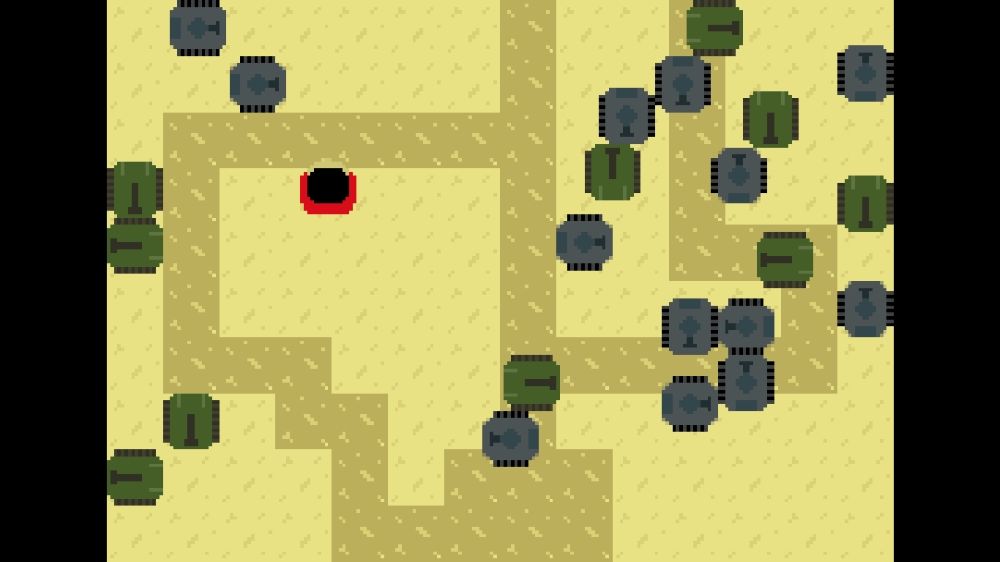News
Below is a review of today’s news in Slovenia, summarised by the headlines in the daily newspapers for Friday, December 7, 2018, as prepared by the STA:
DELO
Trade wars
"Trump and Xi take gloves off": The truce between US President Donald Trump and his Chinese counterpart Xi Jiping is over as Meng Wanzhou, the CFO of the Chinese telecommunications company Huawei, was arrested in Canada at the US's request. (front page, 6)
Bad bank
"Deal in Logatec sweeps away BAMC boss": The disputed land deals by the Bank Asset Management Company (BAMC) in Logatec got Miha Jugart, the head of the bad bank's management board, fired, with businessman Tomaž Besek appointed in his place. He is reportedly close to the Social Democrats (SD) and the Marjan Šarec List (LMŠ). (front page, 11)
Economy
"Higher wages only with greater productivity": Aleksander Zalaznik, the chair of the Manager Association, stressed at yesterday's panel debate that the time is coming when employers in Slovenia will need to start thinking about how to secure higher wages. (front page, 10)
DNEVNIK
Catalan leader visiting
"Catalan call of freedom in Ljubljana": Catalan President Quim Torra was received informally in Ljubljana on Thursday by President Borut Pahor and he had a coffee with parliamentary Speaker Dejan Židan. He is happy that Slovenia is "breaking the silence surrounding Catalonia." (front page, 2)
Catalonia
"Riots in Girona on anniversary of Spanish constitution": Police clashed with protesters in the Catalan city of Girona as they gathered in an attempt to prevent a rally marking the 40th anniversary of the ratification of the Constitution of Spain, which also featured members of the right-wing populist party Vox. (front page)
Pensions
"Challenge for future pensioners and governments too": If Slovenia wants to keep public expenditure for pensions expressed in GDP at the same level, labour productivity needs to be increased, with one option being raising the employment rate among older persons. (front page, 3)
FINANCE
State aid
"Who got the most?": The state paid out EUR 427.2m in aid to companies and various institutions last year, which is 13.9% more than in 2016. The paper analyses for what purposes the money was spent and who got the most. (front page, 4)
Energy prices
"OPEC will reduce production, expects higher energy prices": The Organisation of the Petroleum Exporting Countries (OPEC) will decide today how much it will reduce its daily production of oil. They expect that Russia will endorse the decision again. (front page, 2-3)
Central bank governor candidate
"These are the main viewpoints of Boštjan Vasle": The nominee for the new governor of Banka Slovenije Boštjan Vasle presented his bid to the press yesterday, while the National Assembly will take a vote on him at the session starting on 14 December. (front page, 10-11)
Government staffing
"Changes in BAMC and SSH": The government appointed Tomaž Besek as a new non-executive director of the Bank Asset Management Company (BAMC) and Karmen Dietner as the fifth member of the supervisory board of Slovenia Sovereign Holding (SSH). (front page, 5)
VEČER
Chimney sweeps
"Dangerous for people and environment": As the temperatures are dropping and the heating season is in full swing, chimney sweeps and inspections are warning that heating devices on solid fuel that do not meet the environmental standards are still on the market. (front page, 4)
December festivities
"City with a confused Advent": Maribor was the first to turn on Christmas lights on its streets, but the Advent events in the centre of Slovenia's second largest city lack a concept and strategy and also a little bit of taste, the paper says. (front page, 10-11)
Government staffing
"Necessary staff or consolation prizes": The government wants to appoint additional state secretaries in the ministries of health, education and economy and in two government offices, with the proposals running into some opposition. (front page, 3)
Biathlon World Cup
"Fak does not want to be an old cat": In his first appearance at the Biathlon World Cup, Slovenia's Jakov Fak narrowly missed on a podium finish. He has announced a full attack mode for today's 10-km sprint. (front page, 24)
STA, 6 December 2018 - The number of workers from abroad rose by 18.8% to 86,014 between end of September 2017 and end of September this year, with former Yugoslav countries representing the main workforce pool for Slovenian companies, data from the Statistics Office shows.
According to the Statistics Office, nearly half of foreign workers in Slovenia come from Bosnia-Herzegovina (41,832). They are followed by those from Serbia (10,451) and Croatia (7,316).
However, the inflow of workforce in percentage increased the most from Kosovo, by 27% to 6,930, compared to 24.5% rise in workers from Serbia, a 21.4% rise in workers from Bosnia and an 18.9% increase in workers from Croatia.
Workers from Croatia got free access to the Slovenian labour market under EU rules in July as a consequence of the election-related political hiatus, and Slovenia has accords designed to improve workers' legal standing with Bosnia and Serbia.
The accord with Bosnia has been in force for some time now, while the one with Serbia was only signed in early November, so it has not affected the data yet.
Despite having no such deals, Slovenia is a destination of choice for workers from other former Yugoslav countries as well, including for those from Macedonia, whose number increased by 15.8% to 5,914 by the end of September.
STA, 6 December 2018 - A group of acclaimed scientists and researchers have addressed a letter to Prime Minister Marjan Šarec urging him to increase research funding in 2019 and laying out several issues. Among other things, they expressed concern that only 2% of Slovenian grant bids to the European Research Council (ERC) are successful, while the EU average is 12%.
So far only seven Slovenian research labs have been successful in acquiring grants from the ERC, notes the letter, signed by nine successful Slovenian researchers working either at home or abroad.
Science and research funds have remained virtually level in Slovenia since 2009. Many of the EU member states that joined the bloc alongside Slovenia in 2004, or later, have taken a much more ambitious path, the letter notes.
"The Czech Republic established several centres of excellence, allocating EUR 200m for each of them. Poland is building a synchrotron and a centre for cryo-electron microscopy."
Slovenia fares poorly even compared to the Balkans: Croatia has made it a priority to invest EUR 100m in the Ruđer Bošković science institute, while Serbia is investing EUR 40m in a nanoparticles centre, the letter says.
It adds that Romania and Hungary have each invested about EUR 100m in the past four years, while more developed countries are investing much more.
Austria, for example, launched in 2009 the Institute of Science and Technology, which in 2016 alone acquired more ERC grants than all Slovenian scientists in a decade, the letter illustrates.
The scientists also point to a fiscal policy that "punishes researchers working abroad and forces them to sever all ties with the homeland."
Slovenia unable to attract foreigner talent
What is more, the funds available in Slovenia do not attract top foreign researchers. "Salaries of Slovenian researchers are not even attractive to those from Eastern Europe and Asia, let alone from more developed parts of the world," says the letter, adding that Slovenia has a serious brain drain problem.
Slovenia will only be able to raise a new generations of scientists if it encourages post-doctoral students to join the best research teams around the world and then gets them to return back home by providing funding that allows them to start new research teams.
Moreover, the state should rethink the way science and research funds are distributed. It should move away from giving a little to everybody and make sure that the best and the most promising teams get the funds they need.
"A clear support for science excellence could reverse the trend and start seeing results in five to ten years," the letter stresses.
"We urge you to increase science funding already in 2019, at the very least in line with promises given in the coalition agreement: to increase science funding from 0.38% of GDP to 1% of GDP by 2022."
A Slovenian human rights NGO, Danes je nov dan (Today is a New Day), has produced a game that aims to raise empathy with regard to the difficulties migrants face in leaving their countries and trying to find a safe space in another country.
It’s called Razor Wire, and was inspired by November 2018 being the third anniversary of the placing of such wire along the border with Croatia in order to deter migrants. Moreover, although the number of people trying to cross the border has since declined dramatically, and the new Prime Minister, Marjan Sareč, made removing the wire a campaign issue, the barrier still remains in place.
Level one - escape the war
The game – which can be played online here, if you have a keyboard – is in Slovenian but relatively simple to follow, and requires you to guide a migrant through three increasingly difficult levels as they attempt to reach Europe.
Speaking to Reuters, Maja Cimerman, a project manager at the NGO, noted that "Many refugees... call their experience "the game" because it has many traps and obstacles. They have to travel at night, they have to avoid the police, they are often robbed or their documents are taken away by the police, and often or regularly they are sent back to refugee camps.”
We kept getting stuck on level 2, but perhaps you can do better.
STA, 5 December 2018 - Prime Minister Marjan Šarec met Austrian Chancellor Sebastian Kurz in Vienna on Wednesday, praising good relations between the two countries, in particular economic cooperation. Nevertheless, countries have certain issues, but "they're nothing we couldn't tackle," Šarec acknowledged.
Šarec pinpointed Austrian controls on the internal Schengen border with Slovenia and its legislation that reduces child allowance for foreign citizens working in the country as the most pressing issues.
With regards to the latter, Šarec reiterated Slovenia's position that such legislation is not in line with European rules. He expects that the European Commission will take appropriate action based on a complaint of seven EU members, including Slovenia.
Slovenia also believes that the border controls, introduced amidst the 2015 migration crisis, are unwarranted, because Slovenia controls well the external Schengen border.
Kurz, on the other hand, said that Austria only introduced the controls after Germany introduced them on the Austrian borders. He indicated that controls would only be abolished once external borders of the EU were "adequately protected".
The Slovenian prime minister agreed that external EU borders should be protected well, with Slovenia especially interested in the protection of Croatia's borders with Bosnia and Herzegovina and Serbia.
In this light, Šarec called for expanding Frontex's powers and for addressing the issue of internal Schengen border controls "in European spirit".
Nevertheless, both heads of government praised very good bilateral ties, in particular business links.
Trade between Slovenia and Austria stands at above EUR 5bn a year, with Austria the biggest foreign investor in Slovenia with around 1,000 companies, Kurz pointed out.
"We have lively movement of people, national communities in both countries and strong cultural ties," the Austrian chancellor said as he expressed satisfaction that he and Šarec had agreed to further expand cooperation.
On the other hand, Šarec praised Kurz for Austria's efforts during its presidency of the EU, especially with regards to Brexit, which should be "as painless as possible".
The pair also discussed the EU-Africa summit scheduled for this month, which Šarec believes will be a good platform for addressing migrations. The Slovenian prime minister believes that the issue must be tackled "at its source" and not "everyone for themselves".
Another topic on the agenda was the Western Balkans, with Šarec offering Slovenia's help and experience on the countries' path towards Euro-Atlantic alliances.
However, the pair did not address several other bilateral topics such as the situation of the Slovenian minority in Austria or Slovenia's potential notification of its succession to the Austrian State Treaty at the relatively short press conference following the talks.
Šarec meanwhile pointed out that Kurz and he were part of a younger generation of politicians who see the world and Europe somewhat differently. "We don't want constant returning to the past, we like to look forward," he said.
Slovenia Financially Supports It’s German-Speaking Community, But Special Status Still Off the Table
STA, 5 December 2018 - Slovenia has allocated more than EUR 212,000 to the German-speaking community in Slovenia since 2008 and another EUR 22,100 will be available to the community next year, the Government Communication Office said in response to the community's call to be recognised as a minority in the constitution.
The government service for cultural diversity and human rights has distributed more than EUR 200,000 for the projects of the German-speaking community since 2008, while the public fund for cultural activities has distributed another EUR 12,000. A call for applications will be published next year, offering EUR 22,108 for such projects.
While the community referred to the Council of Europe and the Federal Union of European Nationalities in its arguments, the government said Slovenia had no international commitments to recognise the community as a minority in the Constitution.
The only internationally binding document dealing with the issue of the German-speaking community in Slovenia is the 2001 agreement between the Slovenian and Austrian governments on cooperation in culture, education and science.
Article 15 of the agreement stipulates that the parties will cooperate in cultural, educational and scientific projects to the benefit of the German-speaking community. It does not, however, mention the legal status of the 2000-member group.
Related: Cerar – No Legal Support for Giving Slovenia’s German-Speaking Minority Official Status
When the agreement was ratified, Slovenia also adopted an interpretive statement that the German-speaking community enjoys the rights stemming from Article 61 of the Constitution, granting everyone the right to freely express belonging to their nation or national community, nurture and express their culture and use their language and script.
This reaffirms that Article 15 must not be understood as a recognition of a special status such has been granted to the Italian and Hungarian communities, the government said.
The Foreign Ministry responded by saying that the Slovenian government was ready to continue its dialogue with representatives of the German-speaking community and that additional solutions could be found within the existing legal framework to meet the needs of the group.
The Ministry of Culture has been financially supporting the cultural projects of the group's associations, societies and NGOs based on the ministry's annual calls for applications.
Slovenia has made an effort to protect the cultural heritage of the German-speaking group, including through years of research, whose results were published in various publications and presented at exhibitions.
The research covered the topography of all former villages of the community, all sacral buildings and graveyards in the area. The cultural heritage of the Gottschee Germans living in the south has been presented in several regional and local museums since 1995.
Some 75 prominent figures have also been presented in a special book, the Government Communication Office said.
STA, 5 December - Archaeologists, doing a protective excavation in Bela Krajina without any major expectations, were most surprised when they hit an extremely rare find - a bronze belt bearing a golden coin from the 3rd century BC.
According to expert Peter Kos, the coin found at the Pezdirčeva Njiva site is a Celtic imitation of an Alexander the Great stater [an ancient coin used in various parts of Greece - Wikipedia] featuring goddesses Nike and Athena.
"A golden coin as such is a rare find in Slovenia. As far as I know, this is the third golden coin found at Slovenian sites, and as it seems, the oldest," Lucija Grahek of the Archaeology Institute of the Academy of Sciences and Arts told the STA.
O nenadejani, a tem bolj imenitni najdbi arheoloških izkopavanj v Podzemlju tudi v ZRCalniku, z izčrpnim slikovnim gradivom: https://t.co/8dOK4SJglF
— ZRC SAZU (@ZrcSazu) December 5, 2018
The find is even more valuable because coins usually turn up in searches with metal detectors or in searches in riverbeds, while this one provides archaeologists with much more data.
It was found in "a closed grave, it's position on the belt is clear, and even more, some organic material has been preserved on the belt", potentially making it possible to carbon date the find.
"This will further increase [the find's] value and contribute to the progress of Slovenian and European science," Grahek added.
Archaeologists found the coin and the belt in a series of 15 graves they dug out at Pezdirčeva Njiva in Podzemelj. Most of them date from the 4th century BC, while finds such as ceramics and iron weapons indicate that some date from the 3rd century BC.
Below is a review of today’s news in Slovenia, summarised by the headlines in the daily newspapers for Thursday, December6, 2018, as prepared by the STA:
DELO
Protest for pay
"Fed up with hearing about high profits": Trade unions and employers are in trenches over workers' demands for higher pay. Their views of the situation are completely different. (front page, 3)
Healthcare
"Enrolled in Faculty of Medicine with seven years": The Slovenian Ministry of Health has made a serious mistake. It has mistaken the CVs of two US doctors, Agarwal and Aggarwal, when granting the work permit to the former. The mistake has been rectified, but the authorities did not bother about Agarwal supposedly being only seven years old when taking on study of medicine in Odessa.
Labour
"There will be Christmas bonuses but not the highest": Christmas bonuses and 13th salary have been excluded from income tax since the beginning of the year, but most employers have failed to use the relief to the fullest. Nevertheless, Christmas bonuses will be somewhat higher than last year. (front page, 2)
Police
"Hard blow to Calabrian N'drangheta": Police have arrested more than 90 members of the Italian crime syndicate N'drangheta in an international mission encompassing more than 100 officers from Italy, Germany, Belgium and the Netherlands. (front page)
DNEVNIK
Ljubljana
"State does not care about people in Ljubljana, Janković wants European money": Ljubljana Mayor Zoran Janković has failed to convince the European Commission to give money to Ljubljana to increase earthquake resistance of buildings in Slovenia's capital. Now his only hope is that amendments by Slovenian MEPs succeed in the European Parliament. (front page, 4)
Slovenian-Austrian Relations
"Šarec said nein to Austrians about recognising German-speaking minority": Prime Minister Marjan Šarec visited Austria as the first neighbouring country since he took over. Austria is Slovenia's third most important trade partner and the biggest foreign investor in Slovenia. According to Šarec, there are some open issues between the two countries, but they can be solved.
FINANCE
Pay demands
"Avalanche of pay rise demands while cooling-off is on the horizon": Slovenia's two largest trade union associations ZSSS and Pergam are urging employers to raise pay after the public sector trade unions negotiated a pay hike. But is it the right time to raise pay when cooling-off of the economy is on the horizon, the paper wonders. (front page, 2, 3)
End-of-year bonuses
"How much does it cost if you want to give employees bonuses of EUR 500, EUR 1,500 or EUR 2,000 at the end of the year?": The paper runs a feature about end-of-year bonuses in an effort to answer questions about how much companies have to give the state and how much is take-home bonus. (front page, 4, 5)
Labour
"What to do if you have no money for higher pay": It is all about wages in Slovenia in recent weeks, but what to do if a company does not have the money to raise their workers' pay, the paper wonders and lists several ways on rewarding employees. (front page, 2, 3)
VEČER
Energy industry
"Withering of Dravske Elektrarne": The national power utility HSE wants to streamline hydro power stations operator Dravske Elektrarne, but social partners are not happy. (front page, 3)
Pay demands
"It's about better pay": Hundreds of workers gathered at a rally to call for higher pay, organised by the ZSSS and Pergam trade union associations in front of the headquarters of the Chamber of Commerce and Industry (GZS). (front page, 4)
Labour Ministry
"Dangerous chemistry at ministry": The Ministry of Labour, the Family, Social Affairs and Equal Opportunities is moving its headquarters due to hazardous work conditions at the old building in the city centre. (front page, 6)
December 5, 2018
All the Dedek Mraz lovers out there are kindly reminded that although most Dedek Mraz arrivals take place sometime after Christmas, this is not so in Maribor, where one of the best – and perhaps the best – of his arrivals takes place.
In short, Dedek Mraz will prove he’s real by coming down from Pohorje in a horse drawn carriage on December 8th at 17:00. Do not miss it!
And for all the other opportunities to meet the man himself across the country, Maribor included, we’ll report when the time gets closer.
Slovenia has experienced 38 earthquakes so far in 2018, with most below 3 on the Richter (ML) scale, that figure being exceeded only twice.
First on January 17th, when a 3.8 quake hit the north west of the county, not far from Čezsoča, at a depth of 5 km. Second today, December 5, when at 17:23 a 3.4 magnitude quake struck just outside of Knežak, near Postojna, at a depth of 14 km, and felt at least 44 km away, in Ljubljana.
Related: Old Photos - Ljubljana After the 1895 Earthquake
By coincidence, Dnvenik reported today that a study has concluded more than 41,000 homes in Ljubljana, with around 86,000 residents, were developed before the 1963 Skopje earthquake (6.1 ML) that led to the introduction of tougher standards, and thus could be at risk of significant damage if a similar quake occurred.
If you’d like to keep up-to-date with the latest in seismic activity as it relates to Slovenia, there’s the government website (in Slovene) here, while an international site, in English and searchable by location, is here.
December 5, 2018
For all the fashionistas in search of original pieces out there, Zoofa is the place to visit.
Established in 2013 as an arts and crafts co-operative, Zoofa has slowly transformed into the main Slovenian fashion design station, with 11 local designers selling their garments, bags, shoes and other accessories in a shop where they also rotate as shop assistants.
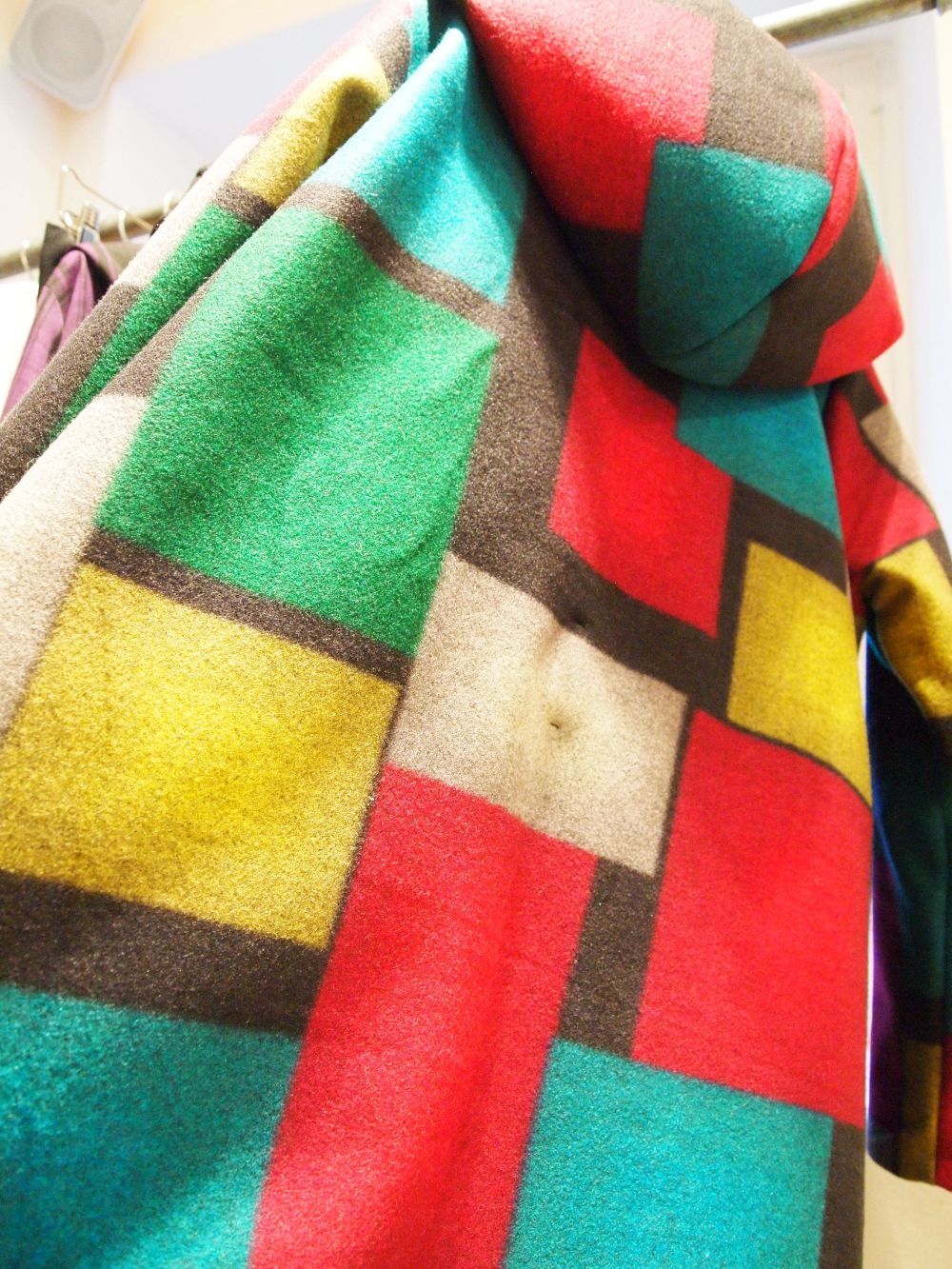
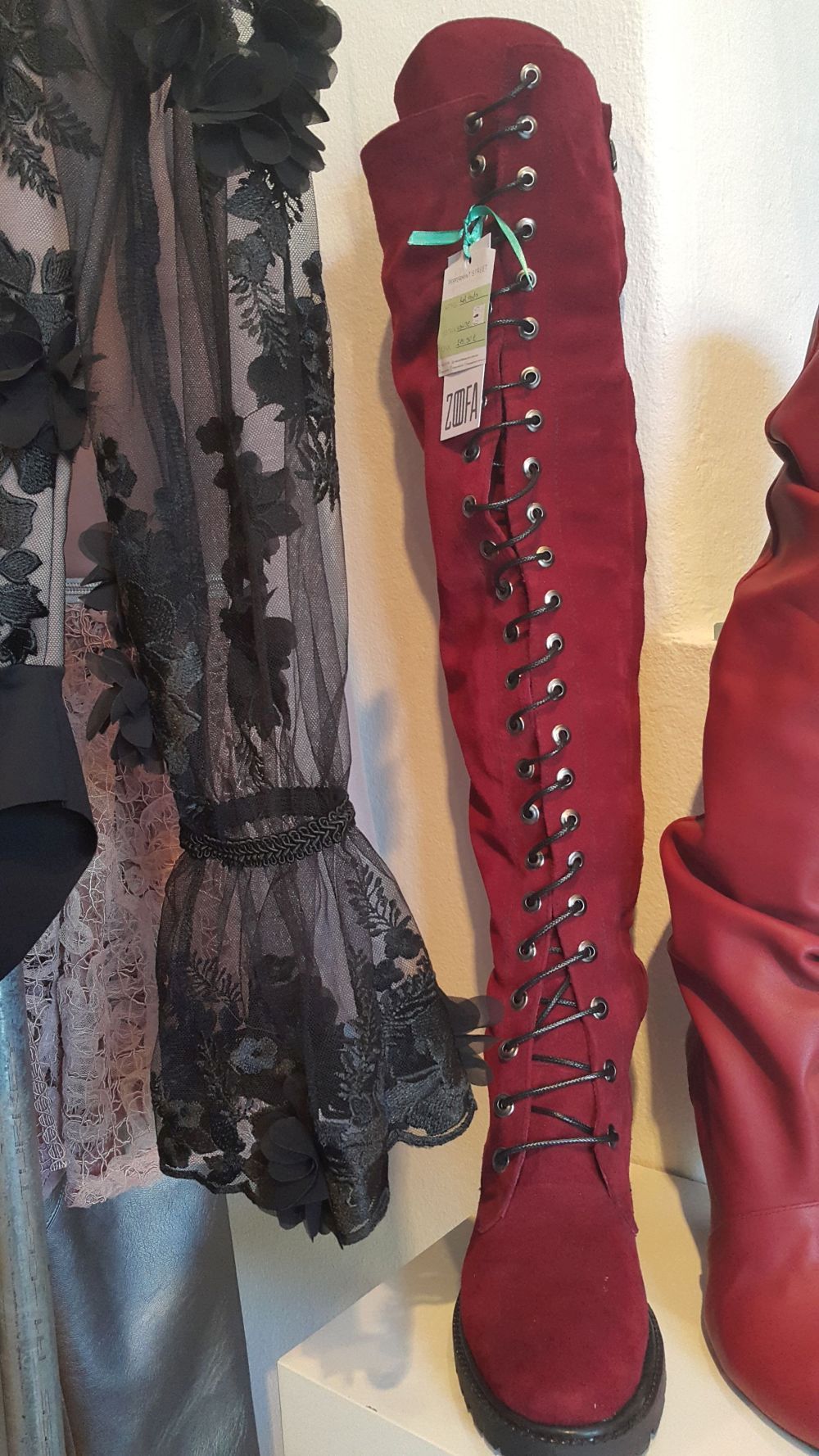
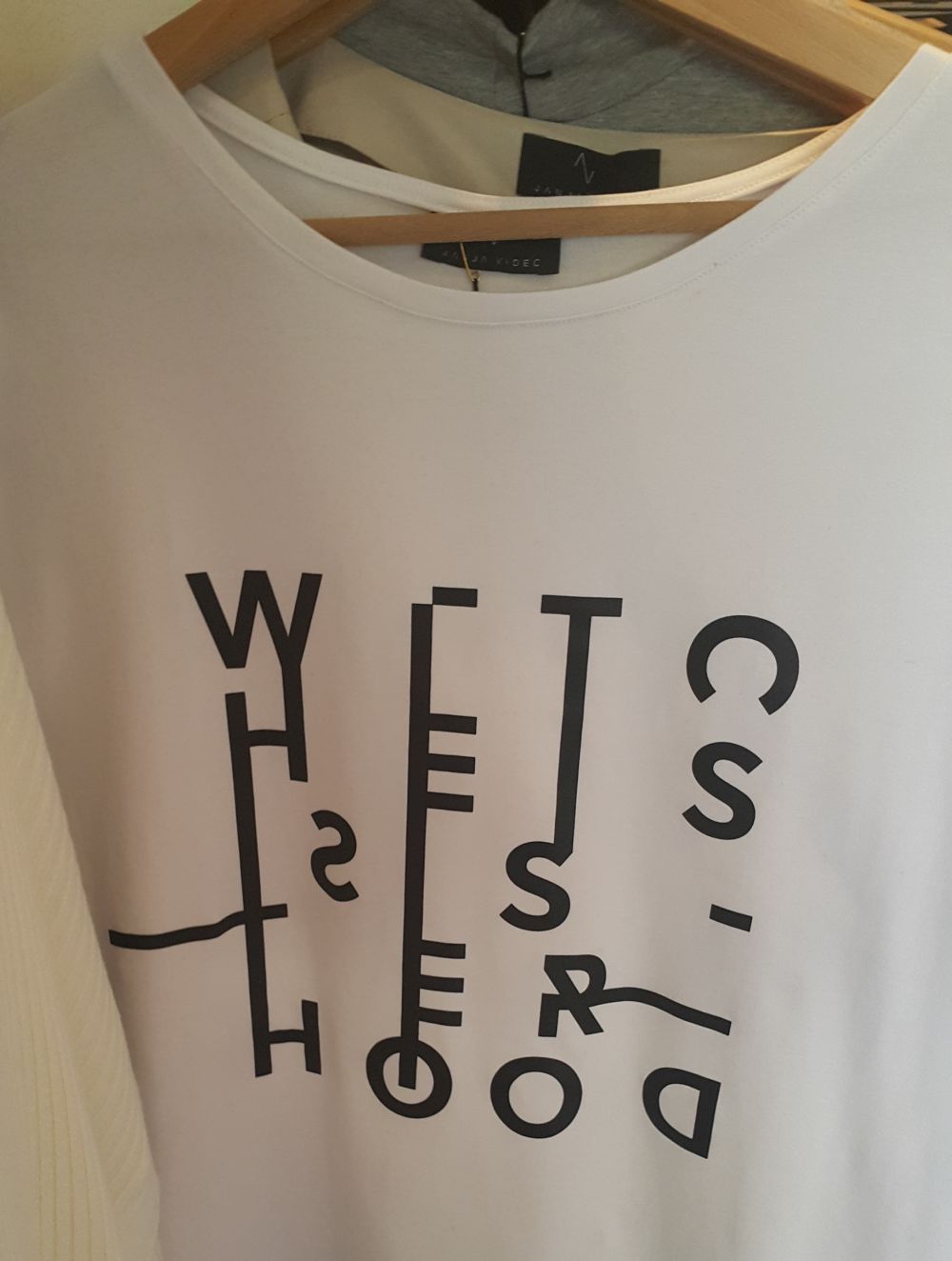
“Witches sisterhood” by Janja Videc
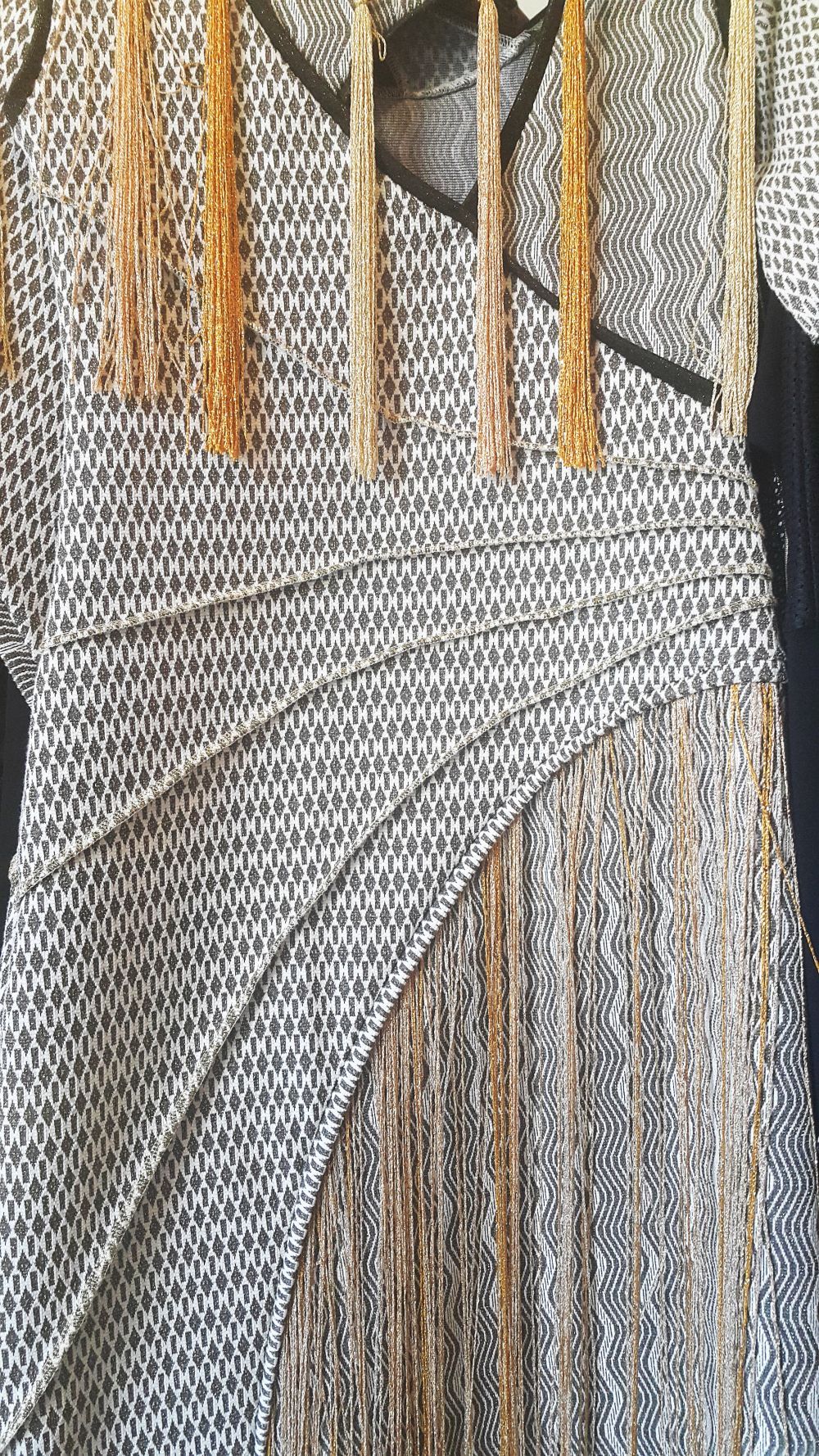
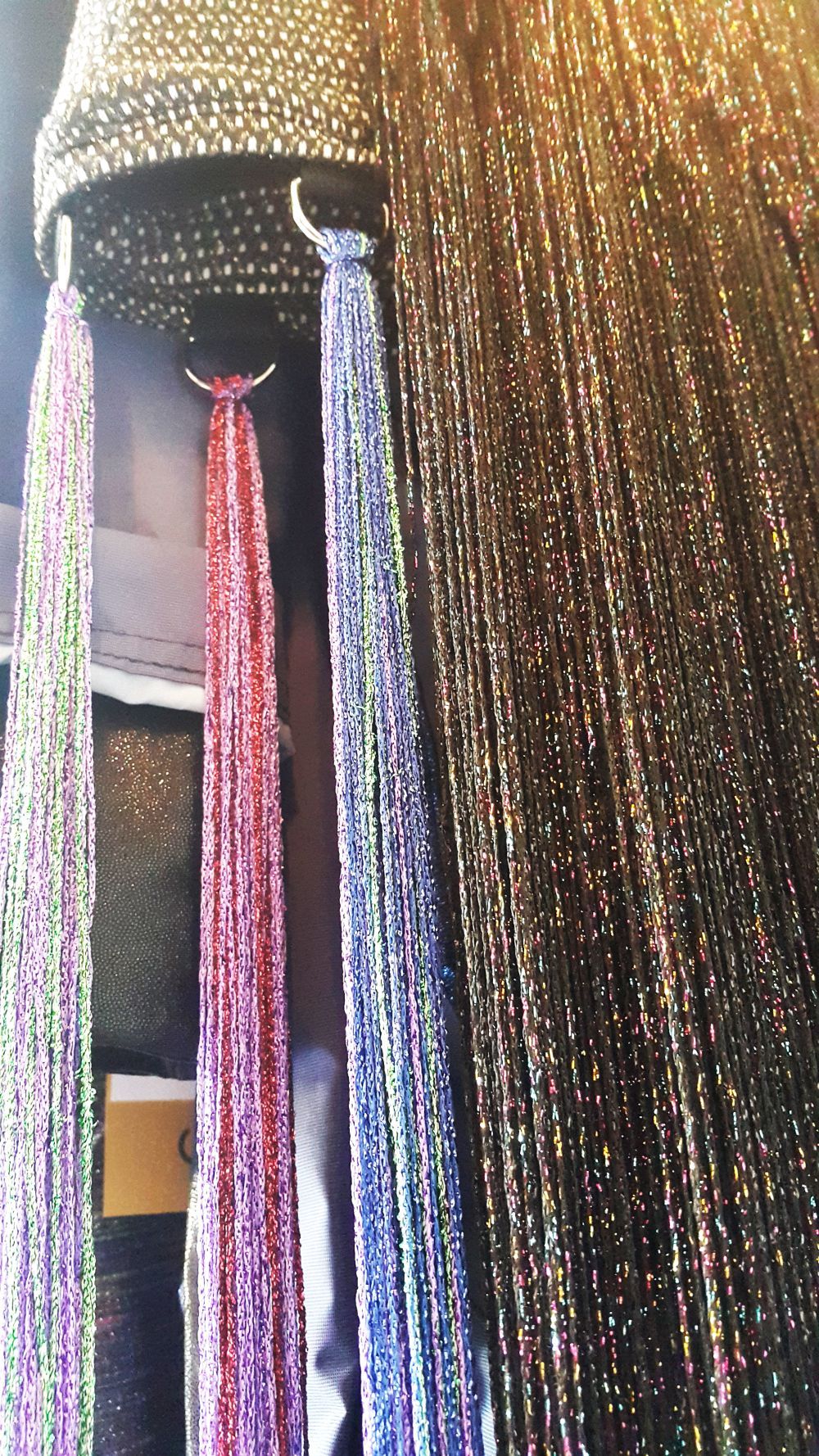
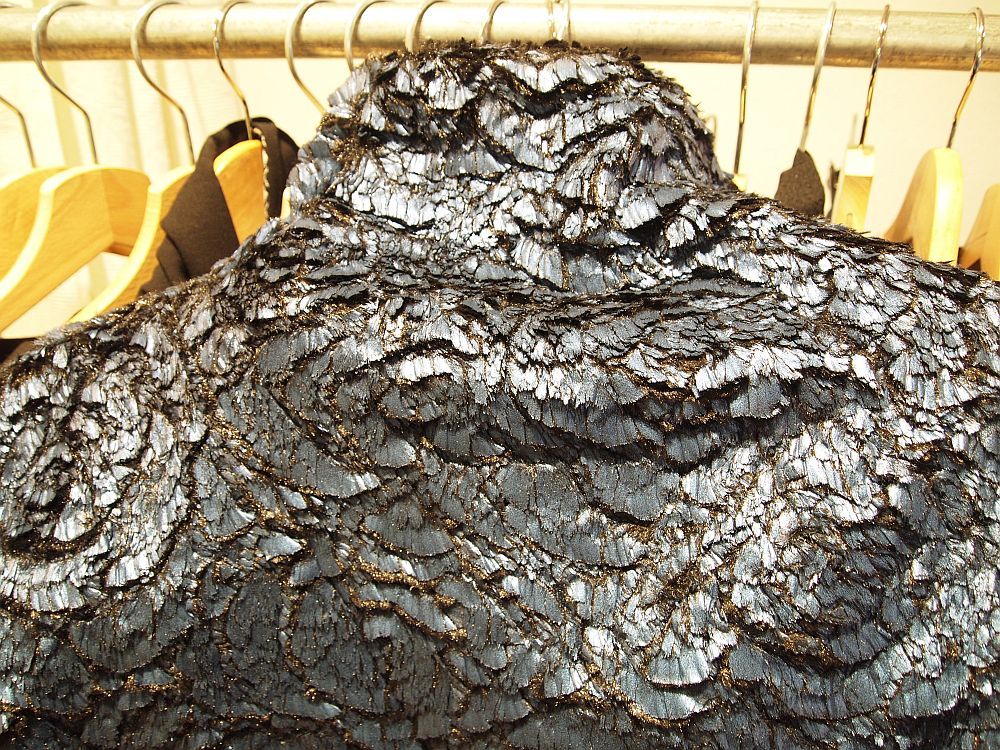
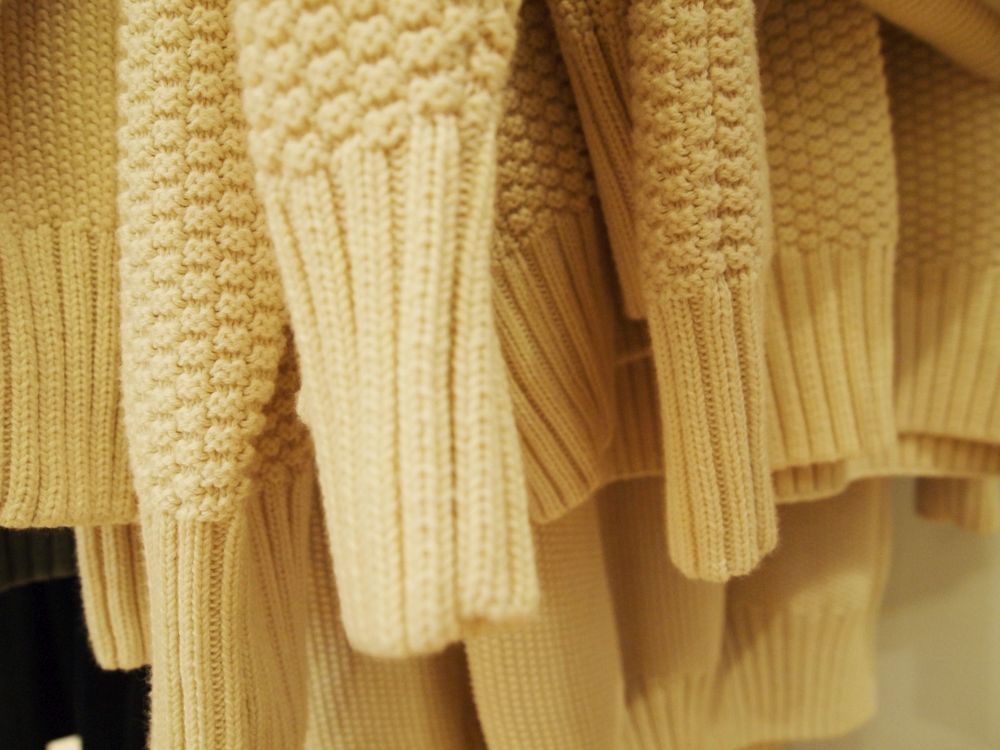
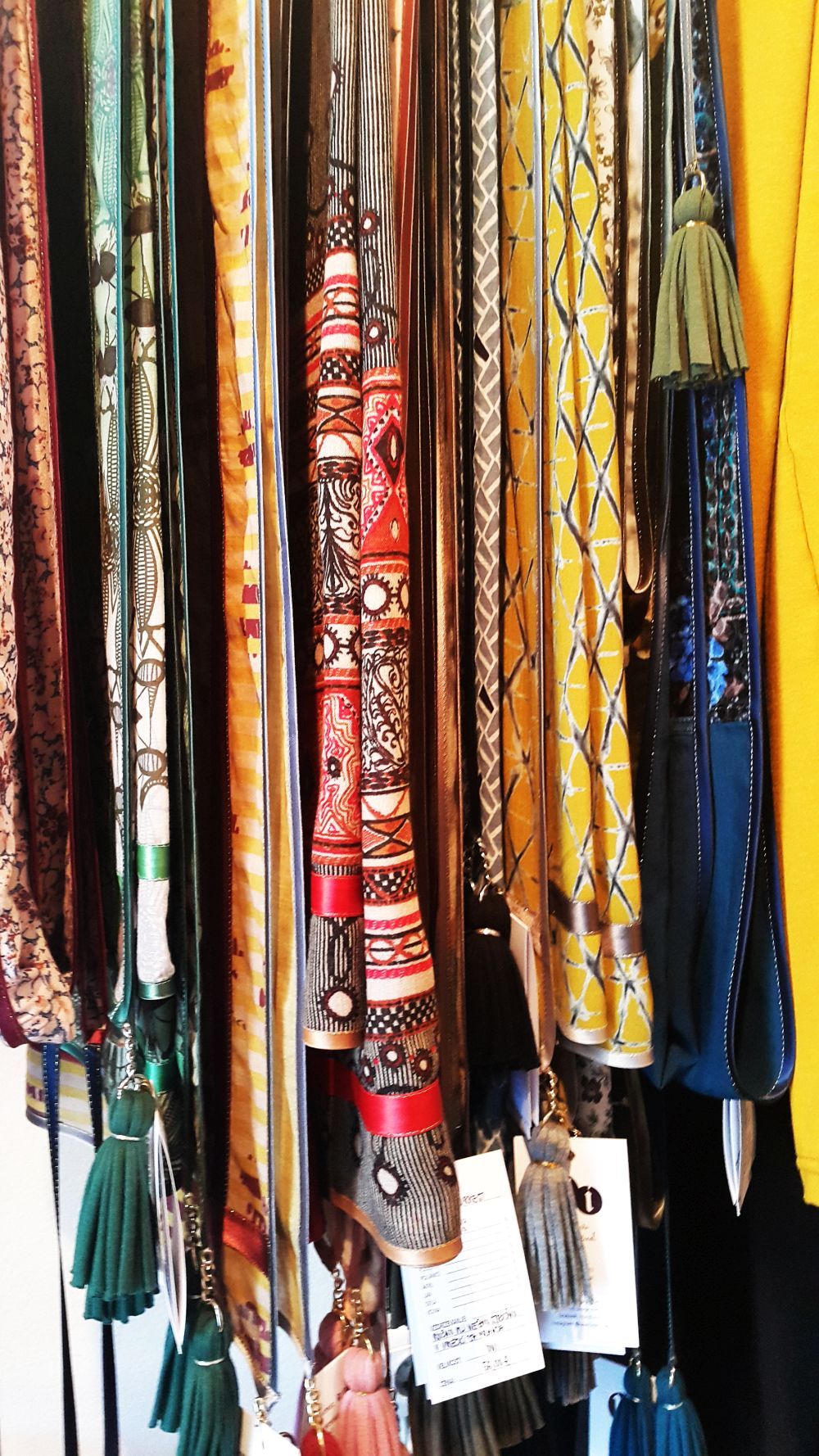
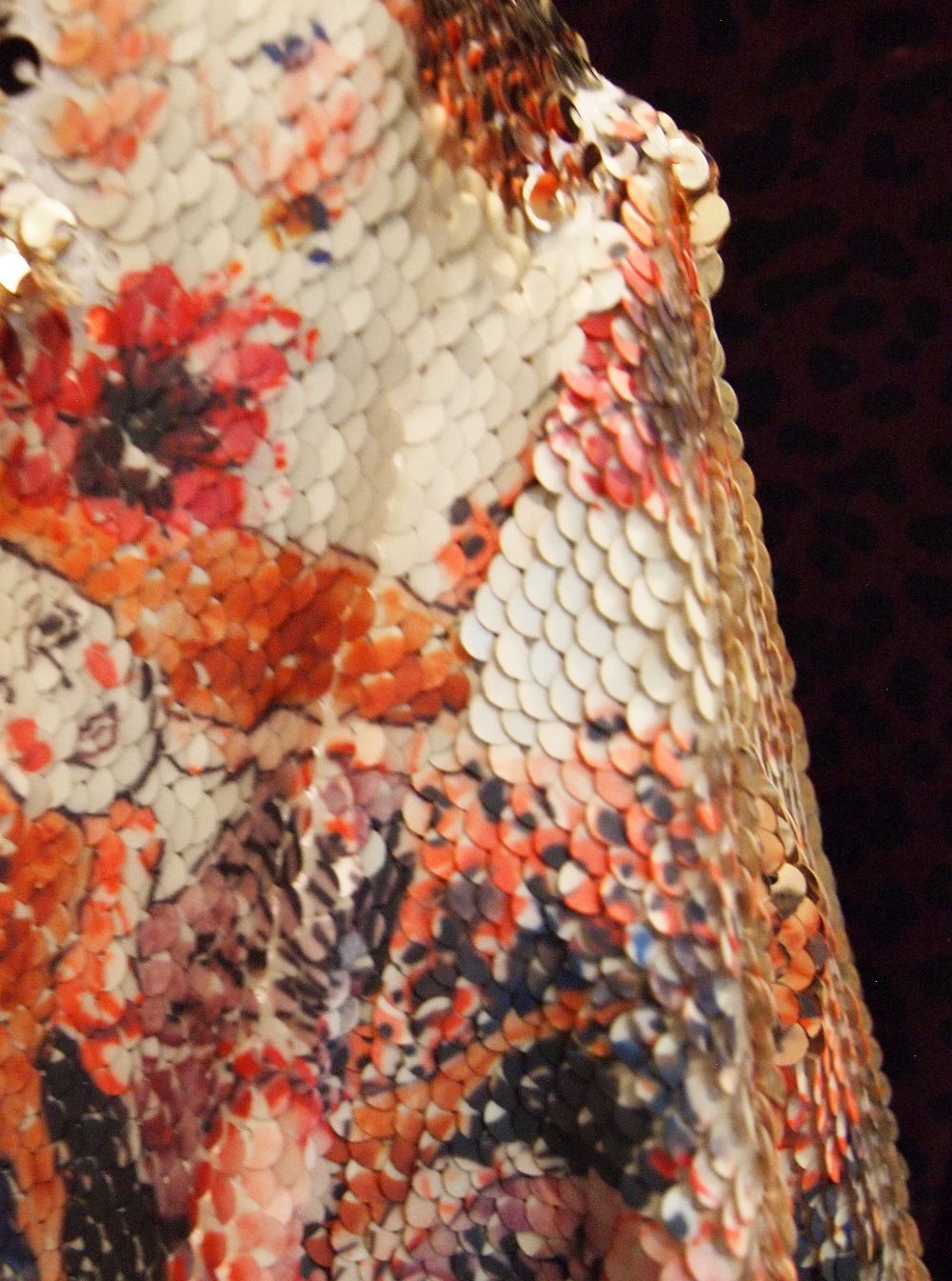
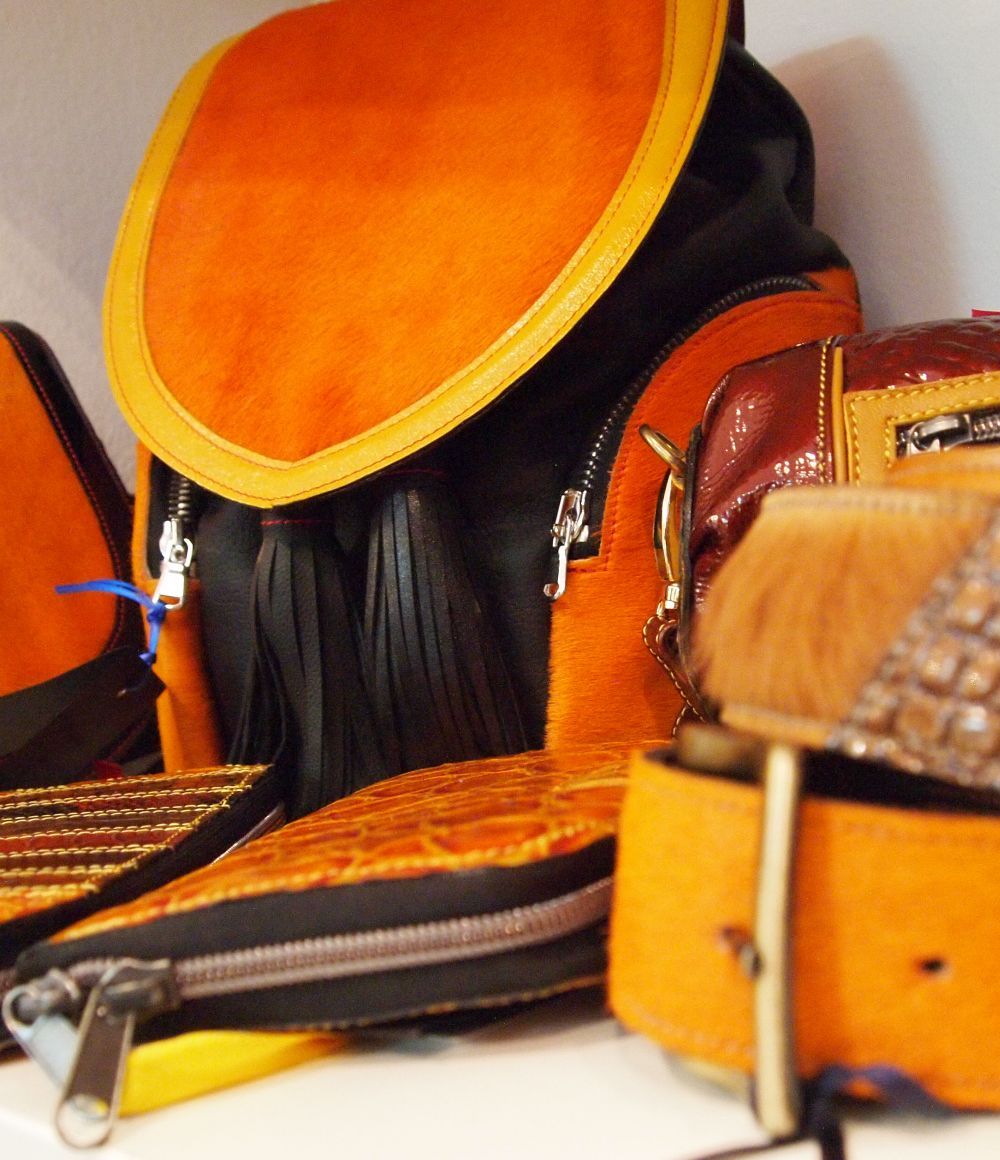
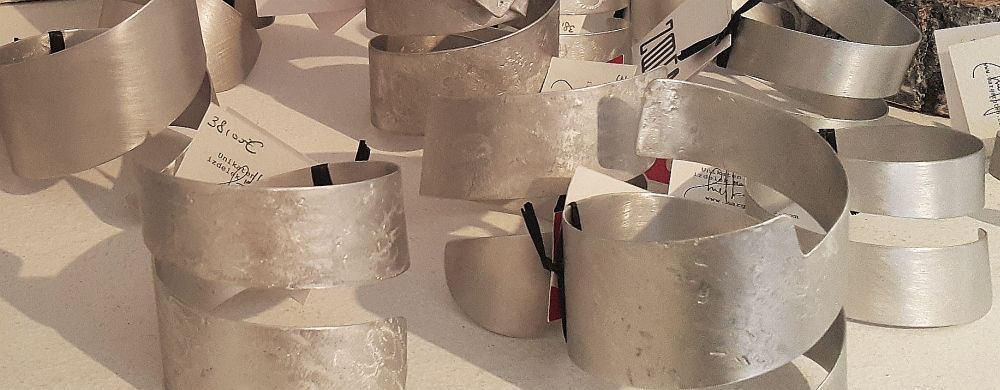
The garments are mostly unique and come in one size. Since the shop is operated entirely by the designers themselves it also works as an atelier, meaning that customers can also arrange clothes to be made according to their fitting, if the fabric is still available.
You can visit Zoofa every weekday between 10:00 and 19:00, while it closes at 16:00 on Saturdays and is closed on Sundays.


